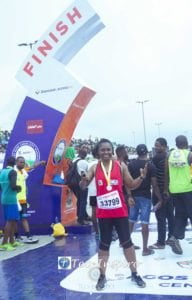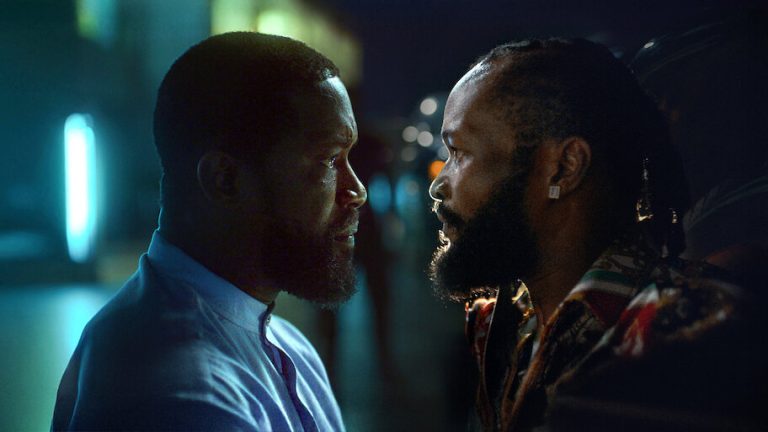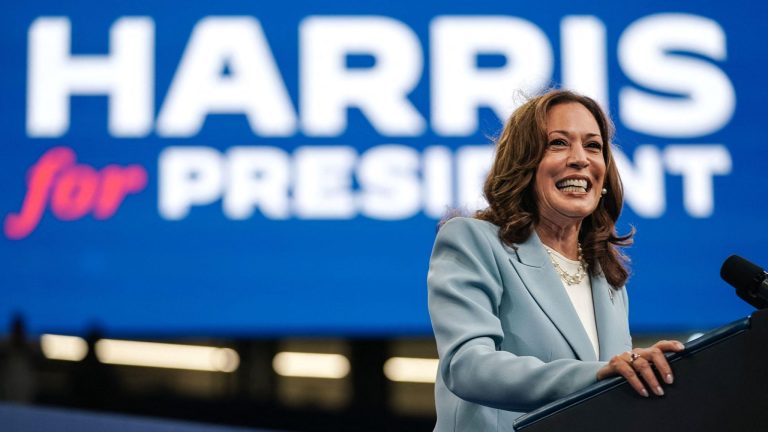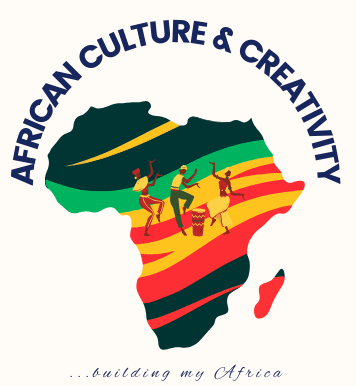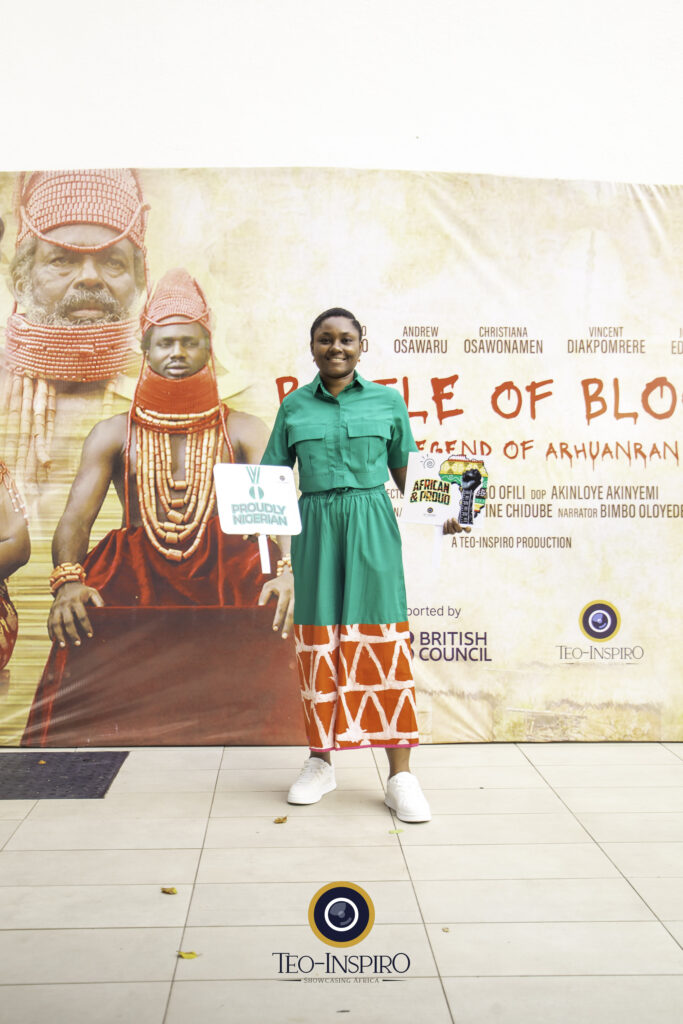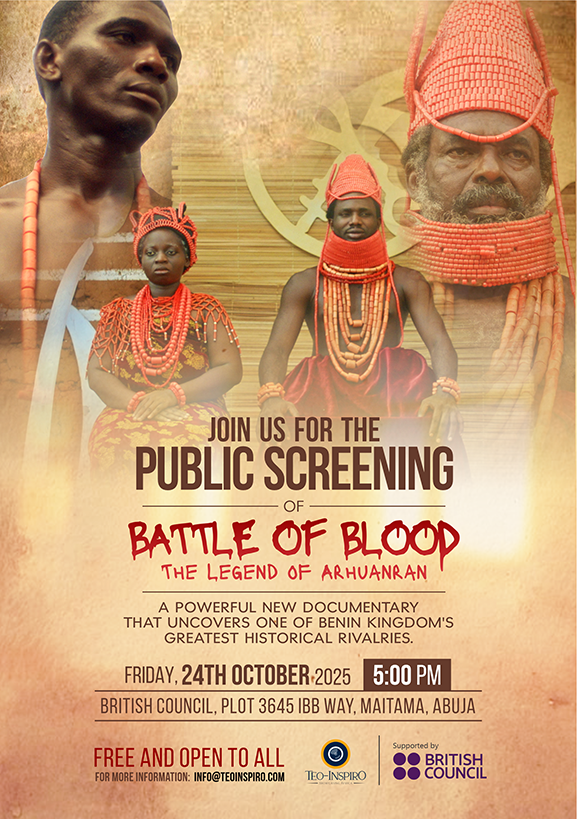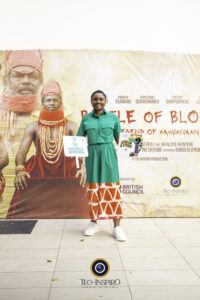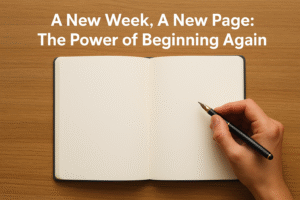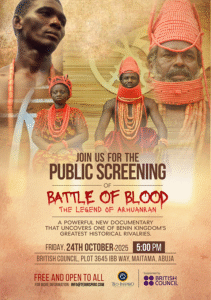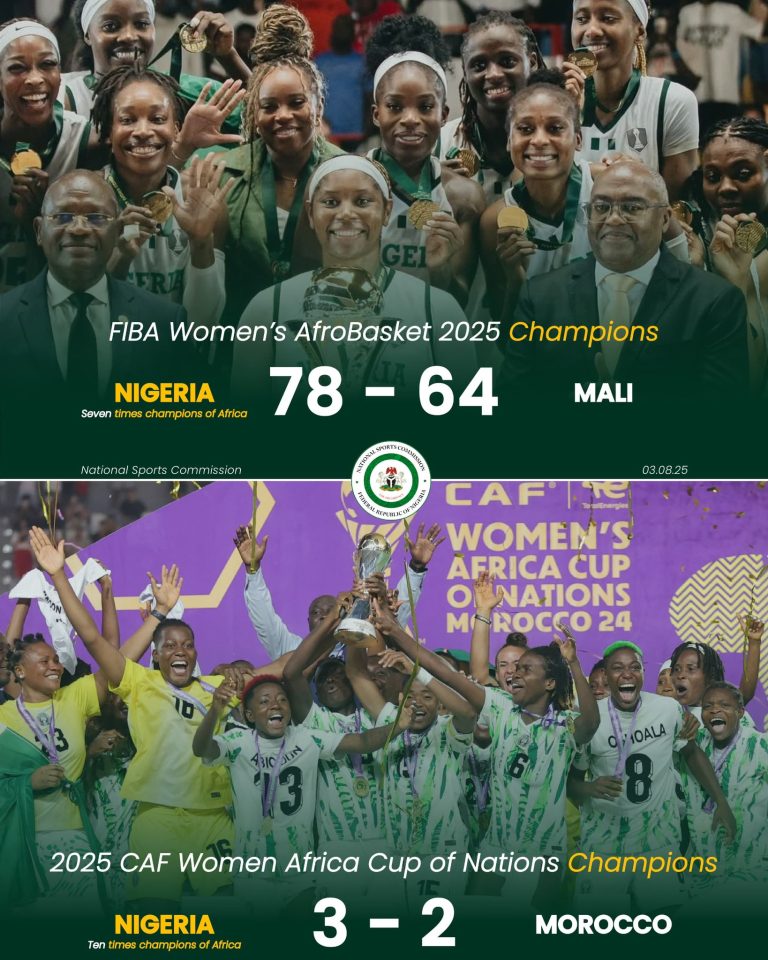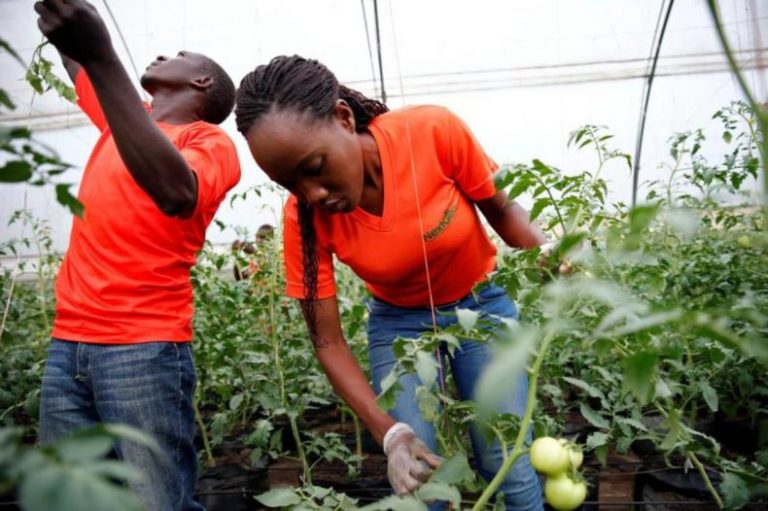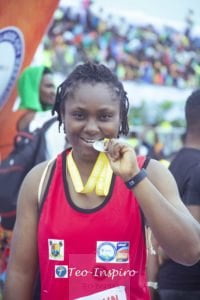
Last year I participated in the 10km marathon race during the Access Bank sponsored event and I came tenth position in the female category. Like most people who participated, I was hoping to be in the top five so I could go home with a prize, but that did not happen. So, I will like to share my experience and provide tips on how you can prepare for D-Day.
Let me start by saying this article is not for those who are wishing to run but have not being practicing for at least six months. It is for people who have made deliberate effort to prepare for this event. I will have to write another article to address long-term preparation, but for today my focus is on those who are running to win.
Unlike the professional marathon which is 42km beginning from Teslim Balogun Stadium in Surulere to the Eko Atlantic City in Victoria Island; the 10km race begins at a point just after the Lekki-Ikoyi link bridge to same destination. It is important to know this because as a runner you will pass by onlookers who do not know where your race started and will try to make jest of you. From my experience last year, the organization of the 10km race was poor; more attention seemed to have been given to the 42km race participants than those for the 10km.
For instance, a race that was scheduled to start at 6:30am did not start until about 9:30am if not later for the 10km. But the 42km race started as planned; I later found out the delay was to allow the professional runners (42km) go past the Lekki-Ikoyi link bridge before the 10km runners. If they had such a plan in mind, then they would have provided good sitting arrangements while we waited. Imagine standing for over three hours before you run a 10km race. So, if you are participating this year, be ready to wait; just prepare your mind.
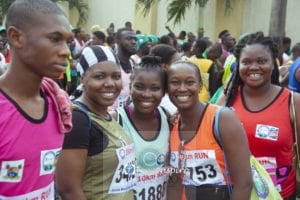
During my over 8 months of preparation I had run 10km three times a week, so I was quite confident that if for nothing I will get to the finish line. The only challenge when the day came was that the conditions under which I was preparing were different from that of the race day. I left my house at 5:30am, when the weather was cool and the environment quiet; but on D-day a 6:30am race started at 9:30am. The sun was out already, it was a hot day plus I was tired from standing and waiting for the race to begin.
What you can do to prepare for a change in weather conditions will be to wear dark clothing which generate heat or wear fully covered kits while practicing so you can thrive during the competition. Looking back, I could have even tried to do some of my preparation at midday, while the atmosphere is hotter. By the time I started the race I was not myself for the first 2km, I almost gave up running. I felt so uncomfortable and tried to figure out what the challenge was. When I got the first water stop I took some bottles and emptied them on my head; like magic, I felt better immediately. It was then I realized I had not prepared for this weather condition.
There’s no provision for glucose at the different stops on your way to the finish line. There were times I felt like I needed energy but had to make do with the fizzy drinks that were available. If you can, get some glucose you can take along on the race. If you cannot get glucose, take a bar or two of chocolate; anything that can give instant energy as you run.
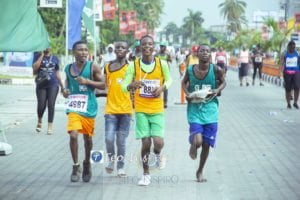
Now let me tell you about the spectators, hmm, my experience was terrible. I don’t know if it is a Lagos or Nigerian thing, but the spectators were not helpful at all. You know how in movies you see people cheering at runners and giving them water or glucose as they pass by them, nothing like that in Lagos oh. Instead they were making funny comments as one ran past. You would hear things like “na your mate pass here two hours ago”, “no be by force to run oh”, “see this one leg”, etc. Thank God I didn’t understand the ones speaking Yoruba, maybe it would have been worse.
The group of spectators close to the 41km or 9km point were very different though, they hailed, cheered and encouraged. But after hearing nasty comments from km one to km eight; at this time I was no more listening, I just wanted to finish my race.
This will be the last tip, do not compete with anyone on a marathon, it is a waste of time and energy. By the time gunshot sounded to begin the race, the rush was massive; I was left behind, but I decided to maintain the pace I had practiced with while I still struggled with the heat. At about km four, I began to pass by people who were way ahead of me when we started, some were now walking. It then dawned on me what they mean when they say life is a marathon. It is very important to focus on your race, the way you have practiced. D-day is not the day to change tactics or strategy, it is the day to execute.
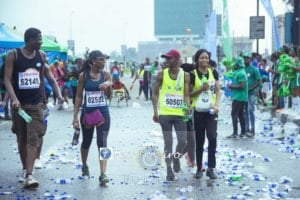
Imagine my surprise when I got to the finish line to find out I came tenth position. I was like, how? Out of over 5,000 people who started the race, how did I come tenth? I realized that even though I started slow, I maintained my pace from practice and finished strong as planned.
Preparing for the race physically is important, your emotional and psychological preparation is also important. Now that I have shared my experience, I believe you will be able to prepare more adequately. All the best as you run.
